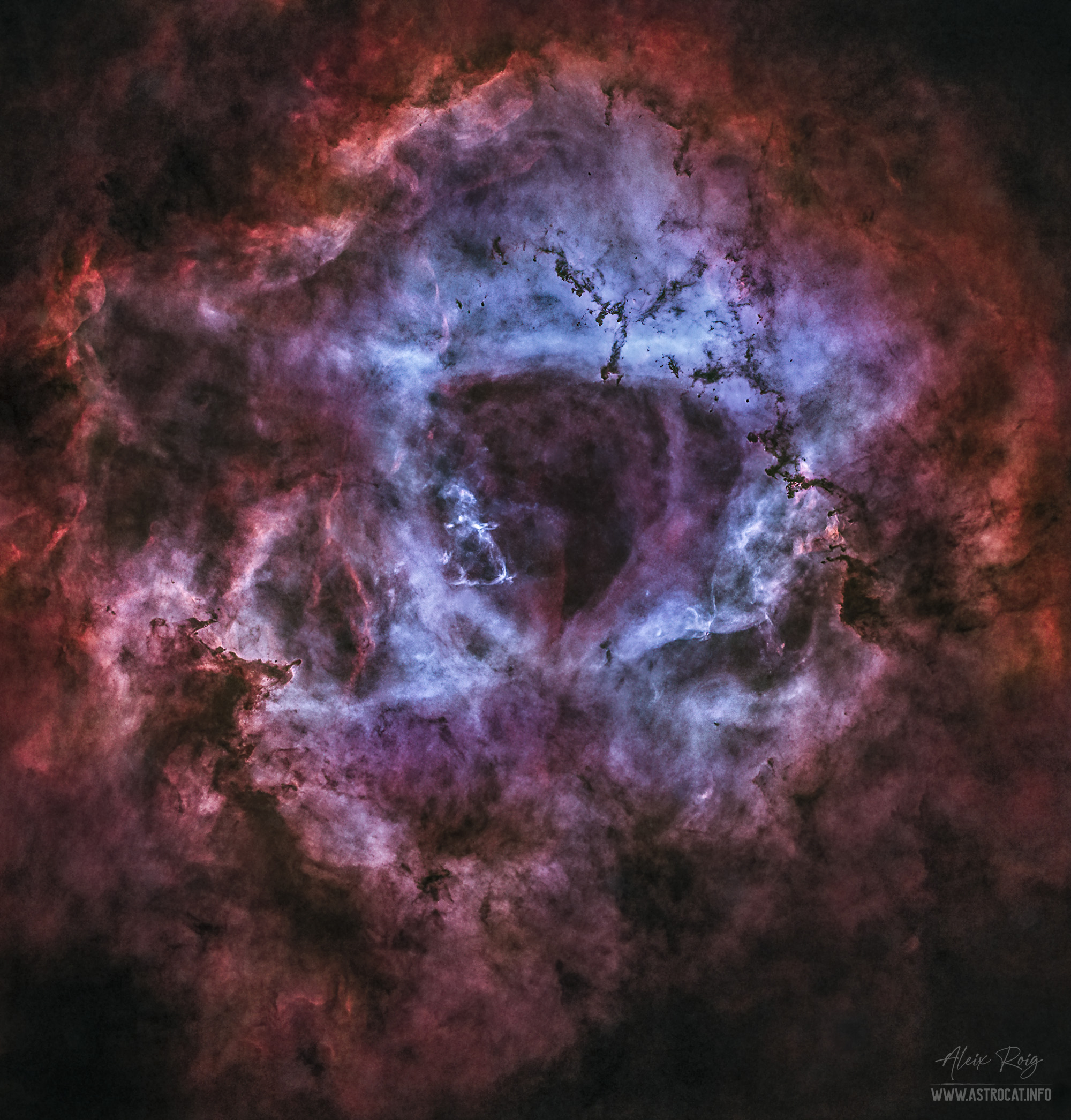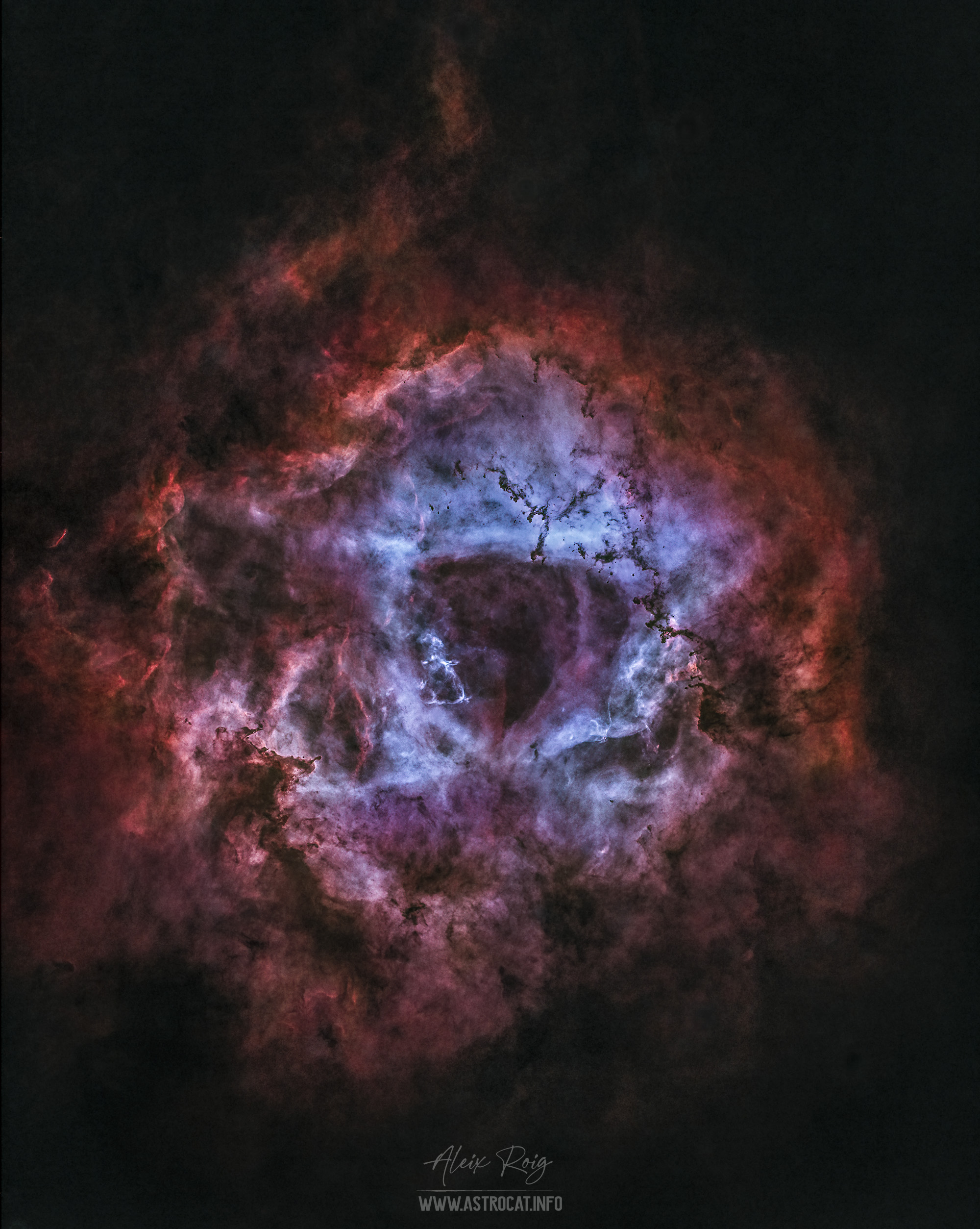The Rosette Nebula, NGC 2237, is a large and amazing HII region located in the Monoceros constellation. The nebula lays some 5.000 light years away from us and measures 130 light years in diameter spanning over 5 times the angular diameter of a full moon.
In the core of the Rosette Nebula can we find the open cluster NGC 2244, composed by hot young O-type stars that sculpts, with its strong winds and radiation, the entire nebula creating this characteristic and aesthetic shape. This region evokes imagery of several African animals.
This image, with a total exposure of 13.5 hours, is the result of combining narrow band data, with the use of [SII], Hα and [OIII] filters, with broadband data, to give a natural color to the stars with the use of R, G, B filters (now removed for a starless image).
To better show the emission data that comes from this active star forming region, a variation of the HOO palette has been used to enhance the entire structure of this nebula. The percentages used to compose this image have been:
RED channel: 30% [SII] + 70 % Hα ; GREEN channel: 20% Hα + 80% [OIII] ; BLUE channel: 20% Hα + 80%
This new processing starless image (April 2022) gives to the nebula some better contrast enhancing some of the inner structures.
Image Details
Hα: 32×600″
[SII]: 9×600″
[OIII]: 18×600″
R: 18×300″ – G: 12×300″ – B: 18×300″
Calibration: 50 darks, 50 bias
All images taken at 0Gain Bin1 -25ºC
Total exposure: 13,5h
Data processing April 2022
Data acquisition 2018
Equipment
FSQ85ED telescope
Mesu200 mount
ASI 1600MM Pro camera with ZWO EFW 8 pos
Guiding with ASI174MC and ZWO OAG
Baader filters
Software
SGP, PHD2, APP, PIX, LR, PS, TPZ.
Aleix Roig – Prades, Tarragona (Catalonia, Spain). April 2022.
Link to Astrobin for a HD view.
Link to other projects realted to this image:
High resolution and wide field project with Josep M. Drudis:
Natural color:


